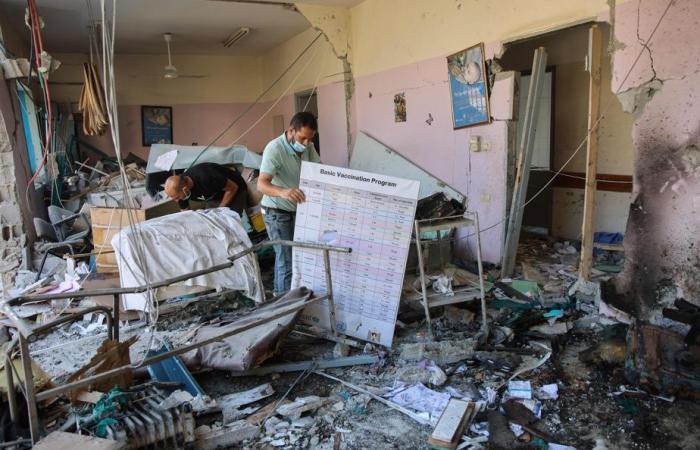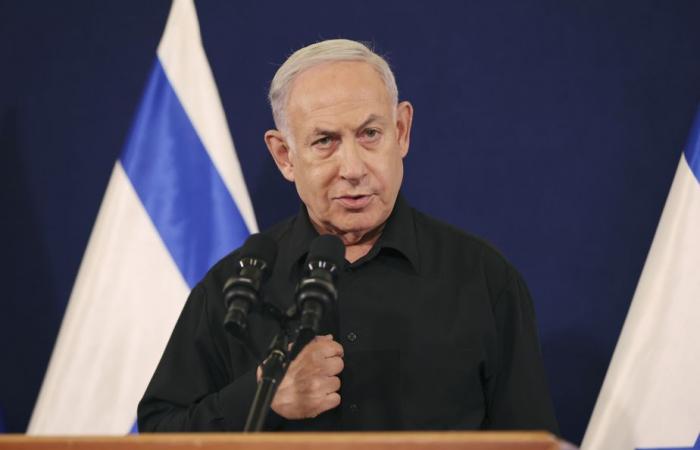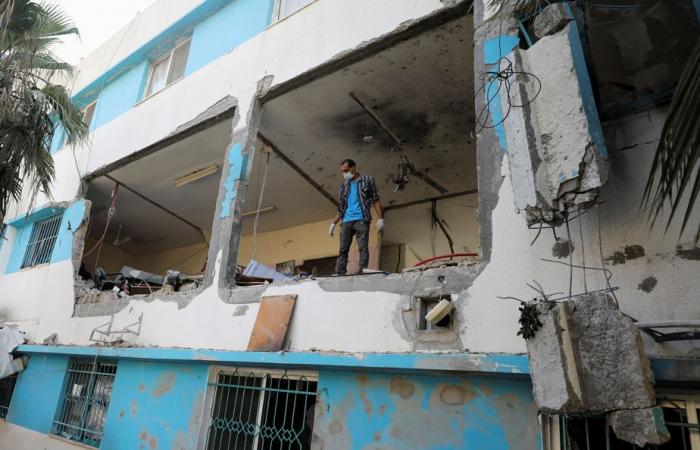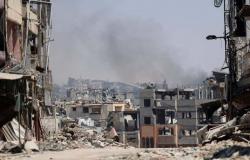Bombings targeted the Gaza Strip on Monday, after the announcement by the Israeli Prime Minister that the “intense” phase of the fighting was coming to an end, notably in Rafah, in the south of the Palestinian territory, but that the war against Hamas would continue.
Posted at 9:12 a.m.
Updated at 6:56 p.m.
The Islamist movement responded that any agreement must “include a permanent ceasefire and a complete Israeli withdrawal” from Gaza, conditions that Israel has always rejected.
The Israeli army launched a ground offensive in Rafah, a town on the border with Egypt, at the beginning of May with the aim of destroying Hamas, the author of a bloody attack on Israel on October 7 which sparked the war.
Families of those killed in the Hamas attack in Israel on October 7 filed a complaint Monday against UNRWA, the UN agency for Palestinian refugees, accusing it of contributing to this unprecedented massacre , according to court documents seen by AFP.
Considered by the international community as essential for humanitarian aid to the Palestinians for decades, UNRWA has been in crisis since Israel accused 12 of its employees of being involved in this attack.
An expert report led by former French Foreign Minister Catherine Colonna concluded in April that there was a problem with the agency’s political “neutrality”, but that Israel had not provided “evidence” to the agency. support for his accusations.
These accusations had pushed several countries to freeze their funding to the agency. Many have since taken them up, with the notable exception of the United States, Israel’s primary diplomatic and military supporter.
“UNRWA […] spent more than a decade before the October 7 attack helping Hamas establish [son] terrorist infrastructure,” the victims’ families accuse, according to court documents.
They believe that the agency “knowingly provided Hamas with the US dollars in cash it needed to pay traffickers in weapons, explosives and other terrorist materials.”
The suit was filed in New York, headquarters of the United Nations and where UNRWA uses banking services, according to the same court documents.
The “intense” phase about to end
“The intense phase of fighting against Hamas is about to end […] This does not mean that the war is about to end, but the war in its intense phase is about to end in Rafah,” Benjamin Netanyahu said on Sunday in an interview with Israeli channel 14.
PHOTO ABIR SULTAN, ASSOCIATED PRESS ARCHIVES
Israeli Prime Minister Benjamin Netanyahu
Monday in Parliament, Mr. Netanyahu assured that he was “attached to the Israeli proposal that President Biden approved, our position has not changed”.
“We will not end the war until we eliminate Hamas and bring the people of the south and north home safely,” he nevertheless stressed.
The plan presented at the end of May by American President Joe Biden, proposed according to him by Israel, provides for a six-week ceasefire accompanied by an Israeli withdrawal from densely populated areas of Gaza, the release of certain hostages, in particular women and sick people, and Palestinian prisoners held by Israel.
This plan aims to establish a “permanent” ceasefire in a later phase, provided that Hamas “respects its commitments”, according to Mr. Biden.
“There will be a war”
Mr. Netanyahu is strongly criticized in his country, where a demonstration of unprecedented scale since the start of the war brought together more than 150,000 people in Tel Aviv on Saturday, according to the organizers, to demand early elections and the return of hostages.
The war has also caused a military escalation on Israel’s northern border with Lebanon, raising fears of an extension of the conflict.
“After the end of the intense phase, we will be able to redeploy some forces to the north, and we will do so, primarily for defensive purposes […] “, the Prime Minister said on Sunday.
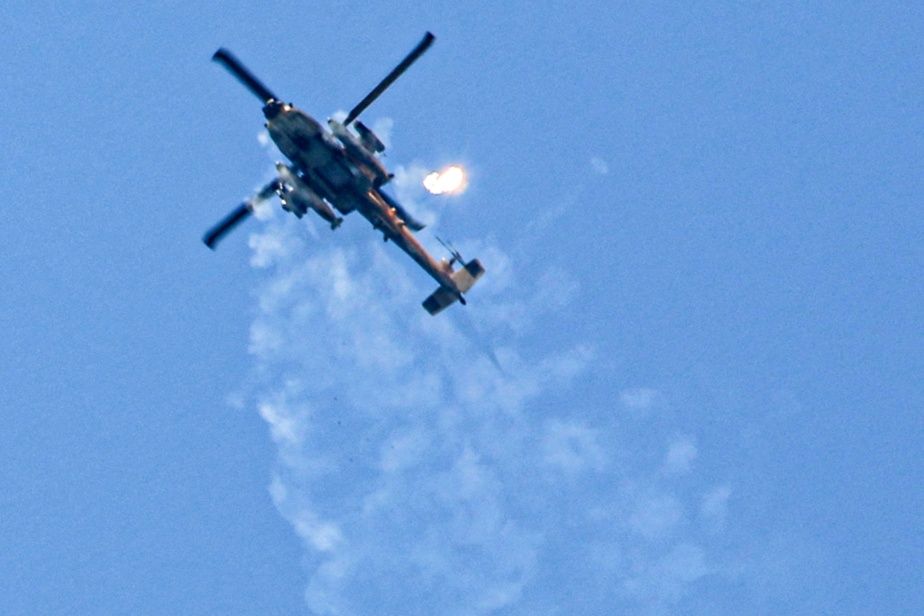
PHOTO BASHAR TALEB, AGENCE FRANCE-PRESSE
An Israeli Air Force helicopter launches flares as it flies over northwest Rafah in the southern Gaza Strip on June 24.
On Monday, the official Lebanese news agency reported that “hostile warplanes carried out three airstrikes on Jurd Massa and Jenta in the Chiaara region” in eastern Lebanon, without reporting any casualties.
For its part, Hezbollah announced that it had targeted three Israeli military sites on the other side of the border on Monday.
Exchanges of fire between the Israeli army and Lebanese Hezbollah, a powerful Islamist movement allied with Hamas, armed and financed by Iran, have led to the displacement of tens of thousands of residents of the border areas of southern Lebanon and the northern Israel.
“There will be a war,” predicted Helene Abergel, a resident of Kiryat Shmona, in northern Israel, staying in a Tel Aviv hotel. “A war must take place to push Hezbollah away from the border,” added this 49-year-old woman interviewed by AFP.
While the relationship between Mr. Netanyahu and the United States is experiencing tensions after Israeli criticism of delays in deliveries of American weapons, Israeli Defense Minister Yoav Gallant arrived in Washington for talks he described as “crucial” for the rest of the war.
“I would like to emphasize that Israel’s primary commitment is to return the hostages, without exception, to their families and homes,” Gallant said before beginning his talks with the CIA chief. , Bill Burns and Secretary of State Antony Blinken.
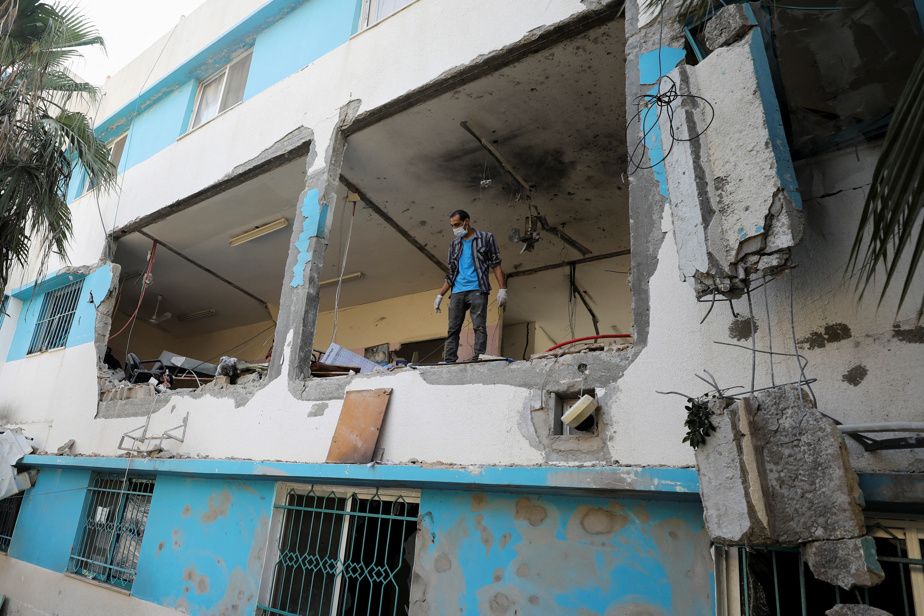
PHOTO DAWOUD ABU ALKAS, REUTERS
A man inspects the damage at Al-Darajj Hospital which was hit during an Israeli strike in Gaza City on June 24.
Looting and smuggling
In the Gaza Strip, besieged by Israel, artillery fire targeted Rafah on Monday as well as the Palestinian camp of Nousseirat in the center and the Zeitoun neighborhood of Gaza City, where fighting was reported, according to witnesses.
According to Civil Defense, two health professionals were killed in an airstrike on Al-Daraj hospital in Gaza City.
The army announced that it was continuing its “targeted operations” in the Rafah sector and having “eliminated armed terrorists” there.
The war was sparked on October 7 by an attack carried out by Hamas commandos in southern Israel, which resulted in the deaths of 1,194 people, mostly civilians, according to an AFP count based on official data. Israelis.
On Monday, the Israeli army announced the death of a Bedouin soldier whose body was taken to the Gaza Strip, bringing the death toll from the attack to 1,195.
Of 251 people kidnapped, 116 are still held hostage in Gaza, of whom 42 are dead, according to the army.
In response, the Israeli army launched a vast offensive in the Palestinian territory which has so far left 37,626 dead, mostly civilians, according to data from the Ministry of Health of the Gaza government, led by Hamas since 2007.
The Palestinian Islamist movement is considered terrorist by the United States, the European Union and Israel.
The war has caused a humanitarian catastrophe in the Palestinian territory where looting and smuggling “are widespread” and “prevent” the delivery of aid that the population “desperately needs”, affirmed the head of Unrwa, l UN agency in charge of Palestinian refugees, Philippe Lazzarini.

